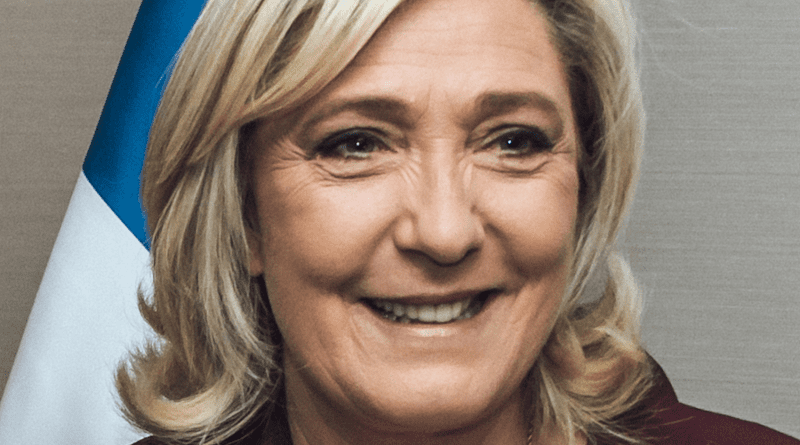What A Le Pen Victory Would Mean For Europe – Analysis
A right-wing victory in France would cause a political earthquake in Europe. And the Franco-German engine would be a shambles.
The European Union’s leaders have remained silent on the French election. No one wants to be publicly quoted with a sentence that could increase Marine Le Pen’s chances of winning. According to almost unanimous opinion in Brussels, a radical right-wing president at the Elysée would be a similar disaster for the EU as Brexit.
European cooperation would become extremely difficult. Marine Le Pen’s election would raise a slew of fundamental issues that would need to be addressed. It would first and foremost paralyze France’s political system. She would be the country’s most powerful politician, but she would be unable to govern in the face of the Senate and the National Assembly. She would have no support in these two institutions, and the majority of the rightist parties would band together to oppose her. It would result in a never-before-seen power struggle with an undetermined outcome. Many European countries, particularly Hungary, may face legal challenges.
The EU’s mechanisms for imposing sanctions on member countries for possible interference with the rule of law are based on a qualified majority of states. For instance, if France does not agree to such a procedure against Hungary, this instrument will be rendered ineffective. This scenario is quite plausible given Marine Le Pen’s close relationship with Hungary’s divisive Prime Minister Victor Orban, who is governing his country in an increasingly authoritarian manner.
The French right-wing populist is equally enamored with Russian President Vladimir Putin. She had her picture taken with him on a trip to Moscow during the 2017 presidential election campaign. She said at that time that she shared his views on Ukraine with the Russian president. She recently stated that once the Ukrainian conflict is resolved, the Kremlin ruler, who is now a persona non grata in the Western world, could become a reliable partner for the West. This means that her arrival at the Élysée Palace would destabilize Europe’s united front against Russia’s war in Ukraine.
A look at Marine Le Pen’s election platform reveals even more how her views are at odds with those of Brussels. The Green Deal, the EU’s most important policy program for the coming decades, is in trouble. Alternative energy sources, for example, are to be promoted in Europe with billions of euros from Brussels, and the continent is to be made climate-neutral. However, in many areas, the approval of the member states is still required.
However, Le Pen is calling for a moratorium on solar and wind power projects. She wants to demolish many of the existing wind turbines. Only nuclear energy, which currently generates roughly 70% of France’s energy needs, is to be promoted. Such an approach would not only destroy the Green Deal concept, but would also push EU’s ambitious goals out of reach.
Berlin, in particular, would have to brace itself for a radical policy shift. Le Pen would not hesitate to scrap the much-touted, but also frequently chastised, Franco-German engine. Many important reforms can only be implemented because of the two political and economic heavyweights’ cooperation. However, Le Pen wants France to realign its alliances in the future. She wants to end the close collaboration between Berlin and Paris. She recently said that the Franco-German relationship had left her “disillusioned, betrayed, and abandoned.”
But not only the EU’s unity would be jeopardized. A Le Pen victory would also throw NATO into disarray and this at a time when Europe is facing its most serious military threat since World War II. When it comes to the defense alliance, Le pen, of all European political figures, is the one who is the most strongly in agreement with Vladimir Putin. NATO is a “bellicose organization,” she claims, and its eastward expansion poses a threat to Russia.
In practice, this means that Le Pen wants France to withdraw from NATO’s command structures. This would not imply the pullout of nuclear weapons, but it would almost certainly have fatal consequences in the event of a prolonged war in Ukraine. This is because the French troops who have been protecting the alliance’s territory on the so-called eastern flank in the Baltic States and Romania would almost certainly be sent back home.
Given these possible scenarios, a great majority of representatives in Brussels do not want to see Marine Le Pen win the election. However, they believe the right-wing populist will not be elected to the Élysée Palace. But, even if she loses in the second round, the danger would not be over. The fact that she is becoming more popular among French voters is not a good sign for the health of France’s democracy.

